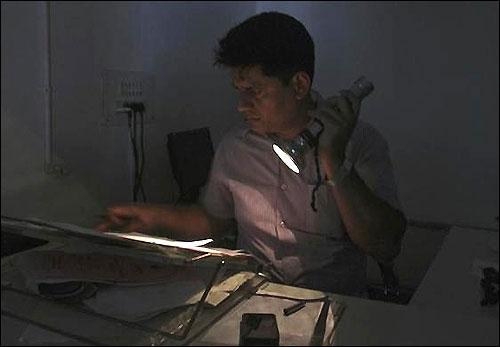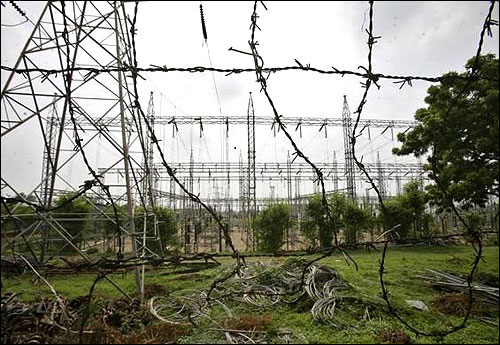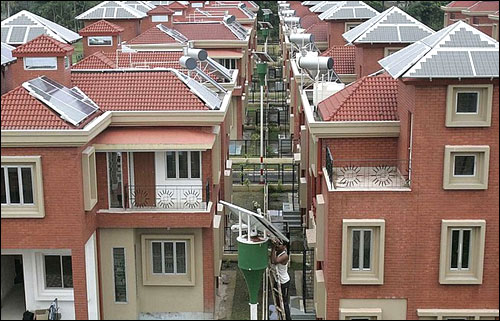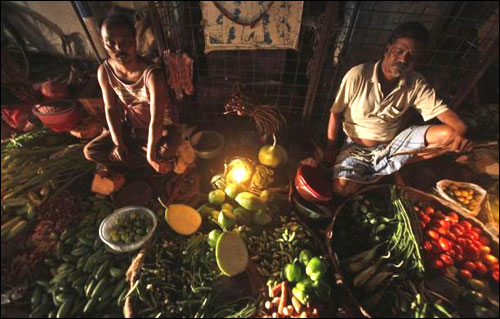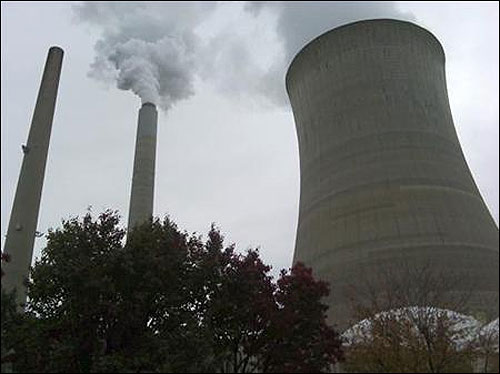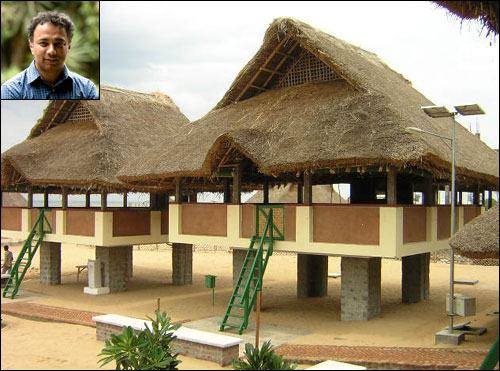 | « Back to article | Print this article |
Blackouts and unconventional solutions
Instead of just being angry or dismayed by last week's blackouts we could all look more closely at some unconventional, out-of-the-box, solutions that have enormous long term promise, writes Rajni Bakshi.
The large scale breakdown in northern India's electricity grid, two days in a row last week, might be an opportunity in disguise. For the moment the emphasis seems to be on investigating the precise causes of the tripping and a blame game is already in process. But a far more serious question remains at the fringes of the public discussion.
Is the current grid supply system of electricity really ideal for a 21st century economy? Are there ways of ensuring a steady and reliable supply of electricity that are simultaneously environment friendly?
There may be no easy or ready-made answers to these questions but it is imperative and urgent that these possibilities be explored.
Click on NEXT for more...
Blackouts and unconventional solutions
Some pointers are offered by a report, titled 'Electricity in Megacities', released just a few weeks before the blackouts.
This research study, by the Pune based NGO Prayas, warns about the enormous challenges of planning and operating such a large electricity grid. One of its key recommendations was the need for load use surveys and extensive promotion of green power.
This in turn is expected to help stabilize the technology and institutional arrangements that would help to ensure smoother operations on the whole.
It may seem odd to mention renewable energy in the context of the recent blackout. But that is because we tend to think of renewable energy in much the same terms as conventional energy - namely that it would be generated in large volumes at one location and then carried across long distances through transmission towers to the end points of use.
Click on NEXT for more...
Blackouts and unconventional solutions
But as proponents of renewable energy have never ceased to emphasis - most renewable energy technologies are products of the new industrial revolution.
The old industrial revolution, which shaped the world over the 20th century, depended on large scale and centralized generation of electricity requiring dams for hydro-power and coal for thermal power plants.
Renewable energy - whether solar, wind or bio-fuel based - lends itself to decentralised generation and use.
It can be as local as your own home, for example solar water heaters which are common place in Bangalore. Or renewable energy can feed into a local grid - which being relatively easier to manage and maintain is also more reliable.
Click on NEXT for more...
Blackouts and unconventional solutions
This is not to suggest that renewable energies would be problem free. But clearly they do hold out more promise than has been fully explored. As the 'Electricity in Megacity' report points out:
"Considering the impending fuel crisis and climate challenge, megacities could play a pioneering role in promoting green power. Megacities have severe space shortage challenge which has to be met through technology and management innovations. A facilitating role of the municipalities in improving the urban planning process by catering to the requirements of electricity service providers and institutionalizing the coordination between various service providers would improve electricity service delivery in megacities."
Click on NEXT for more...
Blackouts and unconventional solutions
In the recent past discussions on renewable energy have tended to take place in the context of climate change and international pressures on India to reduce its carbon emissions.
India is the fourth largest emitter of carbon but our per capita CO2 emissions of 1.3 tons are well below the world average of 4.4 tons.
This is largely due to rampant poverty - almost one in two Indians has little or no access to sanitation, clean drinking water, adequate housing, health care, and modern energy services.
However, since renewable energy has the potential to be a local business - it could also be a livelihood generator. India is already among the top five countries in renewable capacity.
The total share of renewable energy in our electric capacity is more than twice that of the US. But it is not clear how much of this renewable energy is locally anchored and how much of it is large scale centralised generation designed to feed into the conventional grid.
Blackouts and unconventional solutions
According to Harish Hande, the founder of SELCO Solar Lights and a pioneer of solar energy in India, the blackouts are part of a deeper problem.
"Merely increasing the supply side with coal and nuclear will not solve the issue - in fact it will increase it," Hande said in an email interview.
Among the issues that demand urgent attention Hande lists - theft of electricity, inefficient devices such as motors and fans, as well as enormous transmission and distribution losses.
"Decentralised solutions using solar, small wind, biogas, biomas, pico-hydro (and hybrids) can in fact solve many of the problems mention above," says Hande who won the prestigious Magsaysay Award in 2011.
A decentralised approach would have to include better efficiencies, demand side management, lower transmission and distribution losses and also more equitable availability of electricity.
Unfortunately, argues Hande, the emphasis of most policy measures is not on these issues but instead on just increasing supply by pushing for coal and nuclear power.
Click on NEXT for more...
Blackouts and unconventional solutions
More than twenty years ago K R Datye, an engineer and passionate innovator of development techniques, had argued that India could attain universal prosperity by promoting dispersed industrialisation on the basis of decentralised renewable energy.
This approach, known as 'Banking on Biomass', has not become a mainstream trend. But in bits and pieces these ideas are being applied in various places.
The successes and limitations of several Datye inspired micro-projects need closer attention by policy makers and private business.
Instead of just being angry or dismayed by last week's blackouts we could all look more closely at some unconventional, out-of-the-box, solutions that have enormous long term promise.
